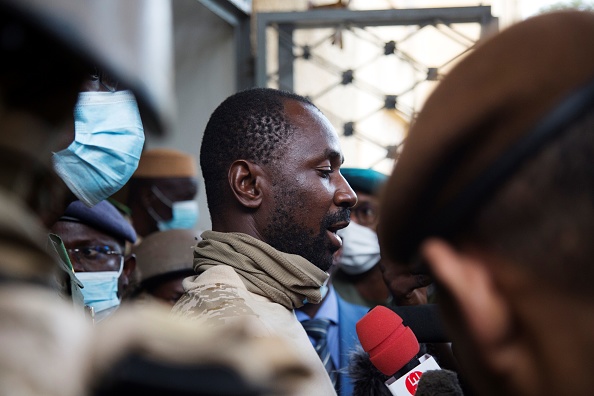Bamako – Mali’s military-dominated authorities on Saturday published a bill designed to further shore up the powers of junta leader Colonel Assimi Goita.
The text, adopted by a cabinet meeting late Friday, provides for the “abolishment of the post of vice-president (of the transition government) to avoid mission duplications and allow the minister charged with defence and the minister charged with security to recover and exercise the full extent of their traditional remits.”
The change further tightens Colonel Goita’s grip on power in the West African country.
Goita led an August 2020 coup ousting elected president Ibrahim Boubacar Keita, who was facing angry protests at failures to stem the jihadists, before a second coup last May gave the army more control.
The bill was published a day after the government called a meeting of the National Transition Council (CNT), Mali’s military-appointed legislative body.
ALSO READ | West Africa bloc says Mali rulers seek to stay in power for years
The session is tasked with “charting the transition” and drawing up electoral law.
The bill published Saturday is set to raise the number of CNT members from its current 121 to bring about “increased inclusivity” in reshaping the state powers.
It also commits to “adapting the duration of the transition” on the recommendation of a process of national consultation, which began in December and is designed to set out a path back to democratic rule.
The consultation in December proposed a transition period under the junta of between six months and five years.
Neighbouring states in the Economic Community of West African States (Ecowas) and the West African Economic and Monetary Union, reacted with alarm and have slammed the potential length of the transition as unacceptable.
ALSO READ | Mali junta expels French ambassador, state TV says
Both blocs on January 9 passed a package of tough economic and diplomatic measures against Mali to show their displeasure and suspended trade and financial transactions with the country, save for essentials.
Following their two coups, Mali’s military leaders have reneged on an initial promise to hold presidential and legislative elections on February 27 aimed at returning a civilian administration.
Mali has over the past decade been wracked by Islamist violence with vast swathes of the country in thrall to myriad rebel groups and militias.
The army has for its part been accused of abuses of power.
Violence which erupted initially in the north in 2012 rapidly spread to the centre and then into neighbouring Burkina Faso and Niger, killing thousands of civilians and soldiers and leaving hundreds of thousands more displaced despite the effects of UN, French and African troops.
Follow African Insider on Facebook, Twitter and Instagram
Source: AFP
Picture: Getty Images
For more African news, visit Africaninsider.com


